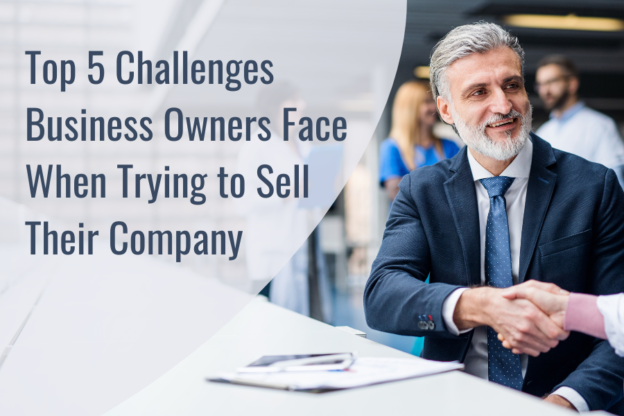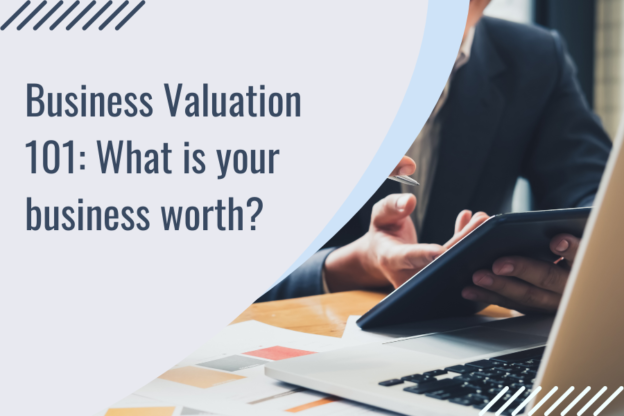Whether it’s your first time or your 101st time, selling your business can be an overwhelming task. That’s why working with an experienced business broker can be so helpful.
A business broker is different from a real estate agent. While a real estate agent may be able to help you sell your building, a business broker can help you sell your business. A broker acts as an intermediary between the buyer and seller, helping to negotiate the sale and ensuring the process goes smoothly. They also offer services like business valuation, marketing, identifying and screening buyers, and negotiation.
A good broker has the network and marketing skills needed to get your business in front of the right buyers and the negotiation skills to get you the best deal. Choosing the right business broker for your business type, needs, and goals is crucial to the success of your sale.
Let’s take a look at a few things to consider before choosing a business broker to sell your business.
1. Understand Your Needs and Goals
First, it’s important to have a good handle on your needs and goals for selling your business. Do you have needs that are unique to your industry? What are your goals for profits, timeline, and other factors related to your sale?
The type of business broker you choose will be, in part, determined by your industry and the specific needs of your business sale. It’s also essential that you can clearly articulate your needs and goals to your business broker so they can create a marketing strategy to suit your specific situation.
As you interview brokers, look for someone you feel comfortable enough with to openly communicate about your sales goals and reasons for selling. If your broker has a clear picture of your goals from the beginning, they will be better prepared to objectively guide you through the process.
2. Research and Evaluate Available Business Brokers
Next, do some research to find business brokers in your area who specialize in your industry:
- Check with your network. Recommendations from trusted business peers is a great place to start.
- Do an online search. Look for a broker who focuses primarily on business transactions, not just commercial real estate. You want someone who can help you sell your business — not just the building it sits in.
- Ask for referrals from industry professionals (such as lawyers or accountants) who have worked with business brokers in the past.
Once you’ve compiled a list of potential brokers, do interviews with them all. Over the phone or in person, ask them about their experience, credentials, communication style, and fees. It’s also a good idea to ask for references or testimonials from previous clients to gain insight into their experience working with the broker.
Ultimately, you’re looking for an experienced broker who listens to your needs and prioritizes your interests.
3. Assess Professional Credentials, Licensing, and Experience
Finding a business broker with a solid track record is critical — as is finding one with experience relevant to your industry. When you’re deciding which broker to hire, examine not only the number of years they’ve been in business and their success rate, but also the types of businesses they’ve worked with.
The operational ins and outs of one type of business are vastly different from another. For this reason, the specifics of a sale will also vary widely from one business to another. Ideally, you’ll want to find someone who has experience in your industry and with businesses similar to yours.
However, if you’re in a unique or niche industry, that may be more difficult to find. In this case, look for a broker with experience selling comparably-sized businesses with similar characteristics.
In addition to experience, take a look at the broker’s credentials and licensing. Credentials with associations like the International Business Brokers Association show you the broker’s involvement in the business brokerage community as well as a certain level of education and experience.
Credentials can also indicate whether a broker has the knowledge and expertise needed to help you not just sell your business, but reach your goals for your sale.
4. Evaluate the Broker’s Marketing Strategies
An experienced business broker will be able to craft a comprehensive marketing plan that attracts qualified prospects, helping you sell your business quickly and profitably.
As you interview potential brokers, ask them how they plan to market your business and how they’ll identify and screen interested buyers. They should be able to clearly articulate their sales strategy and explain how they’ll keep your confidential information safe. A good sales strategy should cast a wide net, making use of both online and offline resources to promote your sale.
Talking to a broker’s previous clients can be helpful here as well, to assess whether they were happy with the broker’s marketing strategies for their sale.
5. Understand Fee Structure and Contract Terms
Before you choose a business broker, make sure you understand the fees they charge and how they are paid. While some brokers work entirely on commission, others may charge an up-front fee.
A broker’s contract terms should outline their fees, as well as the scope of services and expectations for communication and reporting. Never sign a contract without first examining it thoroughly. Ideally, have a lawyer take a look at it before you sign.
In fact, a reputable broker will encourage you to have your paperwork examined by an attorney. This helps reduce liability for all parties.
6. Check References and Past Client Experiences
Finally, ask all potential brokers for a few references from past clients. Contact all references and ask them about their experience with the broker’s professionalism, expertise, and communication skills. You want to find an experienced broker with a reputation for being ethical, honest, and trustworthy.
A word of caution: be wary of brokers who refuse to provide references, pressure you into signing a contract, or discourage you from seeking legal advice. A reputable broker will provide you with the information and time you need to make an informed choice.
Choosing the right business broker for your needs is a vital component of a successful business sale. Make sure to take the time you need to examine these details before hiring a broker to sell your business.
If you are in search of a business broker to help you sell your business, the team at OIB would love to be considered. Don’t hesitate to contact us — we are more than happy to answer your questions and discuss how we can help steer you toward a successful sale.





